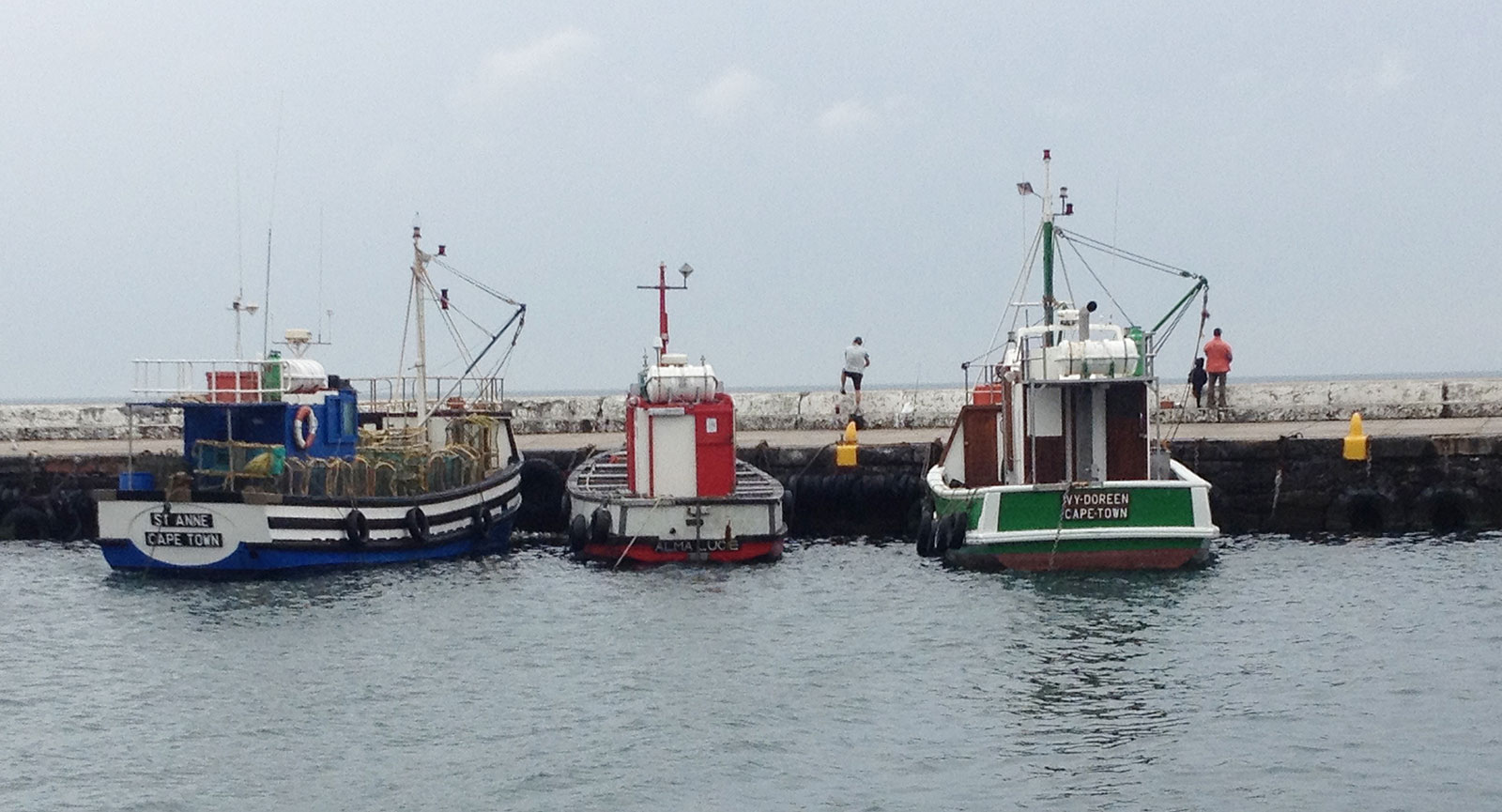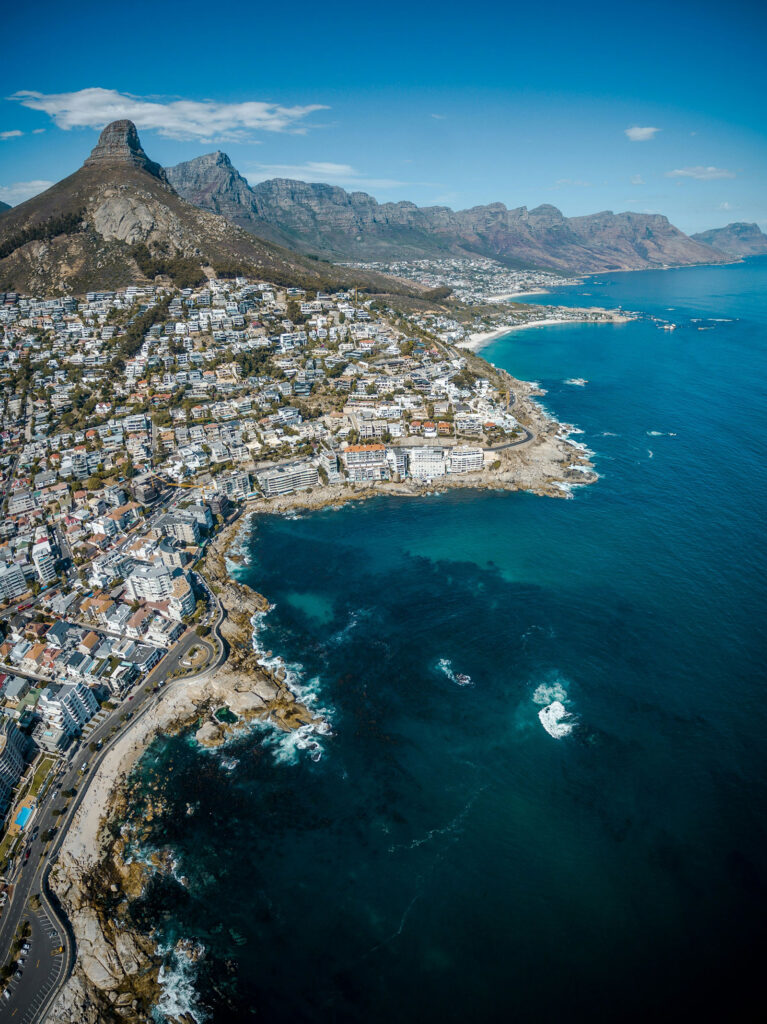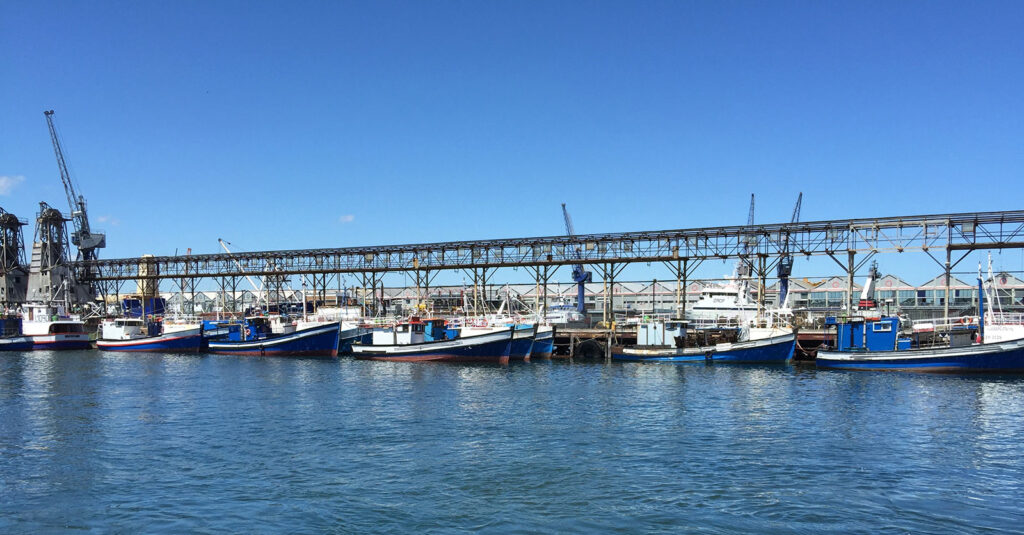
Through the implementation of the Copenhagen Declaration and the Blue Justice Community platform, South Africa is enhancing its capabilities to address sophisticated illegal fishing networks.
The South African fisheries administration was among the first to engage proactively across government agencies to address fisheries crime, having gained experience with successfully prosecuting a high profile transnational organised fisheries crime network in the 1990s. The information collected was crucial for coordinating with various law enforcement agencies within the marine environment to address these crimes effectively.
Blue Justice is inspired by years of strong collaboration between South Africa, Norway, and a number of other countries dating back to 2013 . The concept of fisheries crime was relatively new at that time, and the collaboration aimed to establish a multi-agency approach to address transnational organised fisheries crime. This involved gathering information in multiple jurisdictions on known suspects, their operations, and real-time activities. The information collected was crucial for coordinating with various law enforcement agencies within the larger marine environment to address these crimes effectively.

Establishing the FishCrime Symposium
The first regional inter-agency gathering of fisheries law enforcement officers took place in Cape Town in 2013. This gathering eventually led to South Africa hosting the first International FishCrime symposium in Cape Town in 2015. The following years the FishCrime Symposium became an essential platform to bring together political leaders, law and policy makers, practitioners, and civil society with the joint ambition to address fisheries crime.
At the 4th FishCrime Symposium hosted in Copenhagen, Denmark, in October 2018, high-level delegates representing the governments of the Faroe Islands, Ghana, Indonesia, Kiribati, Namibia, Norway, Palau, Solomon Islands, and Sri Lanka adopted The International Declaration on Transnational Organized Crime in the Global Fishing Industry (The Copenhagen Declaration). During the meeting it was also agreed that Norway would be the custodian and host the Secretariat of the Declaration, which brought about Blue Justice and the Blue Justice Secretariat.
Early Collaboration
South Africa faces unique challenges on preventing illegal fishing. South Africa has two exclusive economic zones – one along its coastline and another around the Prince Edward Islands. These vast areas pose significant enforcement challenges, with sophisticated international criminal networks involved in illegal fishing operations. Internally, the challenges are mainly related to illegal fishing practices by South African citizens but linked to international networks for transportation and processing. These networks operate primarily in foreign countries, complicating enforcement efforts.

Leveraging the Blue Justice Community Platform
Blue Justice provides a platform for information sharing. South Africa aims to leverage this platform to gather, analyse, and respond to intelligence on illegal operators collectively. “This collaborative approach has been instrumental in several successful operations,” says Bernard Liedemann, acting Director, Monitoring and Surveillance at the South African Department of Forestry, Fisheries and the Environment. He shares two examples showcasing successful international collaboration.
In one example, South Africa joined a group of countries to target a well-known syndicate harvesting Patagonian toothfish in contravention of the regional management regulations of the Southern Oceans. When a vessel belonging to the syndicate was spotted near the Antarctic, experts from the countries were capable of receiving information and maintain continuous surveillance of the vessel.
“We were hoping that the vessel would come into the South African exclusive economic zone where we have jurisdiction, but they were clever and remained on the high seas and navigated in the direction of the country where the vessel was flagged and registered,” Liedemann explains. They also tried to burn their nets and they engaged in evasive manoeuvres for more than three months.
As the vessel neared its home waters, the authorities there had been alerted to the situation and refused the vessel entry. At this point, the crew deliberately sank their vessel, “presumably to destroy evidence and compel a rescue operation,” he says. In a twist of poetic justice, they were charged with pollution by the very act of sinking their vessel. “The owners of that vessel were fined more than 50 million Euros,” says Liedemann.
Successful Return
In the realm of international collaboration, another notable example involved receiving information that a consignment related to illegal harvest of a South African abalone had been landed in a foreign port. Through cross-border networks, contact was made with the authorities abroad and it was immediately communicated that the consignment could not be legal, as the product was taken in violation of South African law. The perpetrators claimed to have permits, but cross-border cooperation proved that those permits were false. South African authorities were requested to testify abroad, but the perpetrators pleaded guilty on the day of the trial. The case resulted in fines, and the consignment was successfully returned to South Africa.
This is one of many similar consignments mainly involving South African abalone, a highly prized commodity in East Asia. Numerous such consignments have been intercepted and returned through international information-sharing and collaboration.
Liedemann is excited to explore the possibilities that comes with the enhanced version of the Blue Justice Community and emphasises the central role of forensic evidence and collaboration in this process. The next step will be to expand capabilities within pursuit and apprehension of perpetrators.